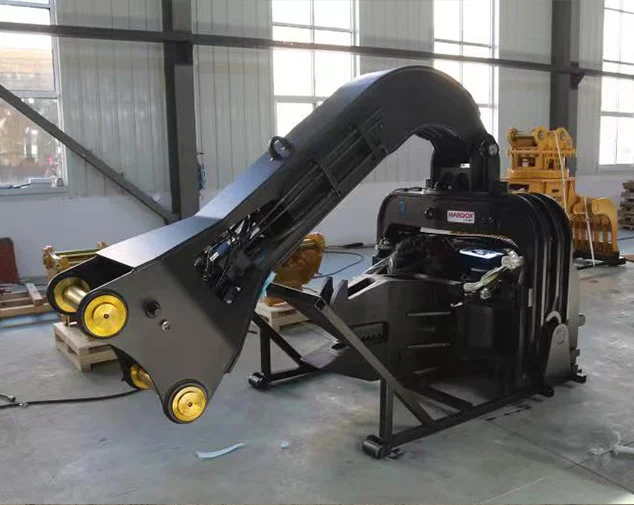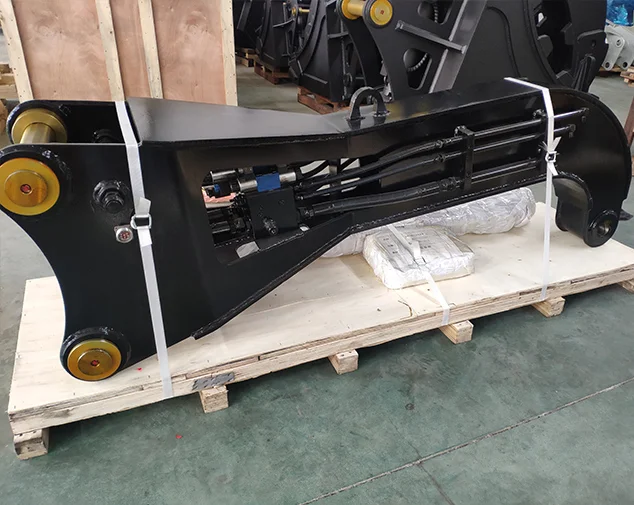How to Choose the Right Pile Hammer for Your Construction Project
What Role Does a Pile Hammer Play in Foundation Engineering?
Pile hammers are key for building strong bases. They push long piles made of steel, concrete, or wood deep into the ground. This makes sure big stuff, like tall buildings or bridges, stays steady. Piles carry the weight of the structure to deeper, stronger dirt.
Hammers hit or shake the pile to make it go down. This is super important in places with soft or wobbly dirt, like near the beach or in cities with big buildings. Without hammers, the ground might not hold up heavy stuff.
You need pile hammers for projects like skyscrapers, docks, wind turbines, or highways. Any job with weak dirt at the top needs these tools to make a solid base.
What Types of Pile Hammers Are Available and How Are They Applied?
Choosing the right hammer depends on your job, the dirt, the rules, and the pile type. Each hammer works in its own cool way for different tasks.
Why Diesel Impact Hammers Are Still Widely Used Despite Emission Concerns
Diesel impact hammers use burning fuel to make strong hits. They’re great because you can move them easily and they don’t need extra power machines. They hit piles fast, even big ones. But they’re loud and make smoky air, so they’re not great for cities or places where nature matters.
When Should Hydraulic Impact Hammers Be Preferred Over Other Options?
Hydraulic impact hammers are quieter and let you control how hard they hit. They’re awesome for city projects or near forests and animals. They work great for steel or concrete piles, on land or in water. Kingho’s hydraulic hammers are super steady and safe for lots of jobs
How Do Vibratory Hammers Function Differently from Impact-Based Systems?
Vibratory hammers shake the pile instead of hitting it. This makes the dirt around the pile loose, so it slides in easier. They’re perfect for sandy or loose dirt and for sheet piles in city digging projects. They’re quiet, which is great for places with people nearby.
Are Drop Hammers Still Relevant in Modern Construction?
Drop hammers are old-school. They lift a heavy weight with gravity and drop it on the pile. They’re not as fast as new hammers, but they’re cheap and work for small jobs or when you don’t have fancy machines.
What Should You Consider Before Choosing a Pile Hammer?
Picking a hammer means thinking about a bunch of stuff to make sure it works great for your project.
How Do Soil Conditions Influence Your Equipment Choice?
The dirt you’re working with changes which hammer is best. Hard clay needs strong hits from hydraulic hammers. Sandy dirt likes vibratory hammers that shake things loose. Kingho’s shock absorber uses Korean Autox, which is tough and handles wobbly dirt well by keeping shakes low.
Why Must Pile Type and Material Be Matched with Hammer Specifications?
Piles are different. Concrete piles need even hits to avoid breaking. Steel piles can take harder hits. Big piles need more power, so you need a stronger hammer. Matching the hammer to the pile keeps things safe and fast.
What Role Does Energy Output Play in Effective Pile Installation?
The hammer’s power, measured in kilojoules, needs to be strong enough to push the pile down without breaking it. Good energy means fewer hits and faster work. Kingho’s hammers are built to send power just right, so your job stays on track.
How Can Environmental Constraints Shape Your Equipment Decision?
City rules often limit noise and shakes. Quiet hammers, like hydraulic or vibratory ones, help you follow these rules. They keep neighbors happy and your project moving. Kingho’s smart designs make sure you meet these needs.
Which Metrics Help Evaluate Hammer Efficiency On-Site?
Once your hammer is working, you need ways to check if it’s doing a good job.
Why Is Blow Count Important Beyond Just Speed?
Blow count is how many hits it takes to move the pile a little bit. Fewer hits mean the hammer is working great. But too much power can hurt the pile, so you need a balance. Kingho’s hammers hit just right to keep things safe.
How Do Noise Levels Affect Project Viability in Urban Zones?
Loud hammers can stop your work if they break city noise rules. Quiet ones, like Kingho’s hydraulic or vibratory hammers, let you keep going near schools or hospitals without trouble.
What About Fuel Consumption and Long-Term Operating Costs?
Hammers that use less fuel save you money. Kingho’s integrated design, safe and stable, low failure rate means less downtime and fewer fuel costs. Their smart systems make every drop of fuel count.
What Solutions Does Kingho Offer for Modern Pile Driving Challenges?
Kingho makes awesome pile hammers that solve tough job problems with cool tech and strong builds.
Guangdong Kingho Technology Co., Ltd. builds smart machines for excavators. They’ve been doing this for over ten years, helping with city projects, mining, ports, and railways. They make great stuff like breaker hammers and pile hammers, including their top-notch hydraulic plate compactors.
Their hammers use Q345 manganese plate steel for strength and rust protection. They have Eaton oil seals and Autox shock absorbers from Korea for long-lasting work. Kingho’s machines also have 42CrMo alloy steel pins for extra toughness, so they keep going even in hard jobs.
Which Kingho Model Fits Your Specific Project Needs Best?
Picking the right Kingho hammer makes your job safer and faster.
What’s Recommended for Deep Foundations Through Dense Soil Layers?
For tough dirt, like clay, you need a hammer with big power. Kingho’s pile hammers with 42CrMo alloy steel pins are super strong. They push through hard ground without breaking, perfect for deep bases.
Which Equipment Performs Best Offshore or Near Water Bodies?
In water projects, like docks or wind farms, rust is a problem. Kingho’s hammers with Q345 manganese plate steel fight rust and stay strong. They’re great for wet places and keep working for years.
Are There Compact Options Suitable for Sites With Limited Access Space?
For small spots, like city basements, Kingho has tiny hammers. Their integrated design is small but steady, so you can work in tight places without losing power.
How Reliable Is Kingho Equipment Over Time—and What Support Is Available?
Kingho’s product is tough. They follow ISO9001 and CE certifications for top quality. Their big factory with CNC machines makes spare parts fast. They also teach your team how to use the hammers safely and fix them if needed.
Why Should You Partner With Kingho For Your Next Foundation Project?
Choosing Kingho means getting more than just tools. You get smart machines built for your job. Kingho Technology uses years of know-how to make hammers that meet city rules or tough sea conditions. Their certified gear works anywhere, from noisy cities to far-off water projects.
FAQ
Q1: Can I use one type of pile hammer across different soil types?
A: Some hammers work for lots of dirt types. But you get the best results by matching the hammer to the dirt. Vibratory hammers are great for sand. Impact hammers work better in clay.
Q2: How does noise regulation affect my choice of piling equipment?
A: In cities with noise rules, quiet hammers like Kingho’s hydraulic or vibratory ones keep you out of trouble. They let you work without upsetting folks nearby.
Q3: Are spare parts readily available if I choose Kingho products?
A: Yes! Kingho’s big factory, updated in 2023, makes parts fast. They offer help and training worldwide to keep your project running smoothly.



